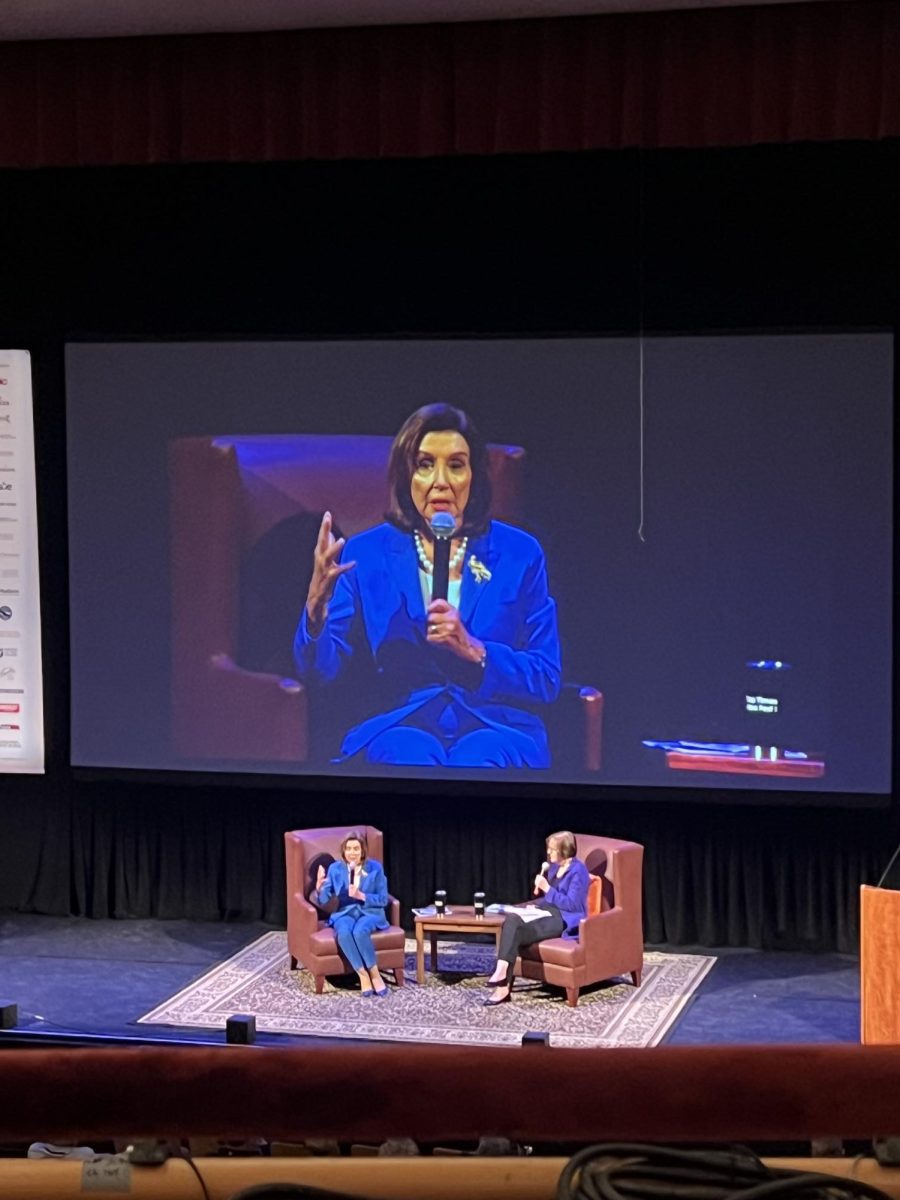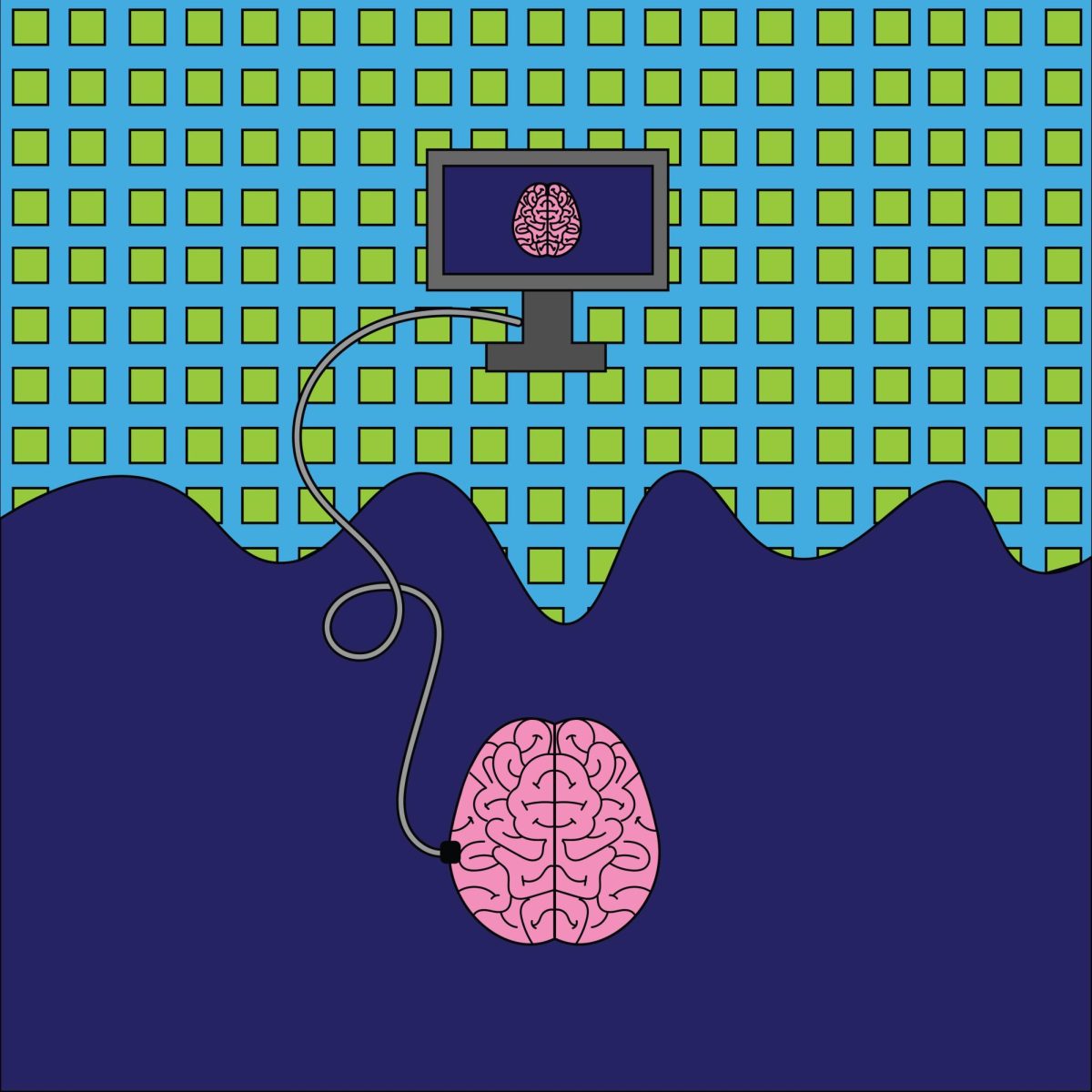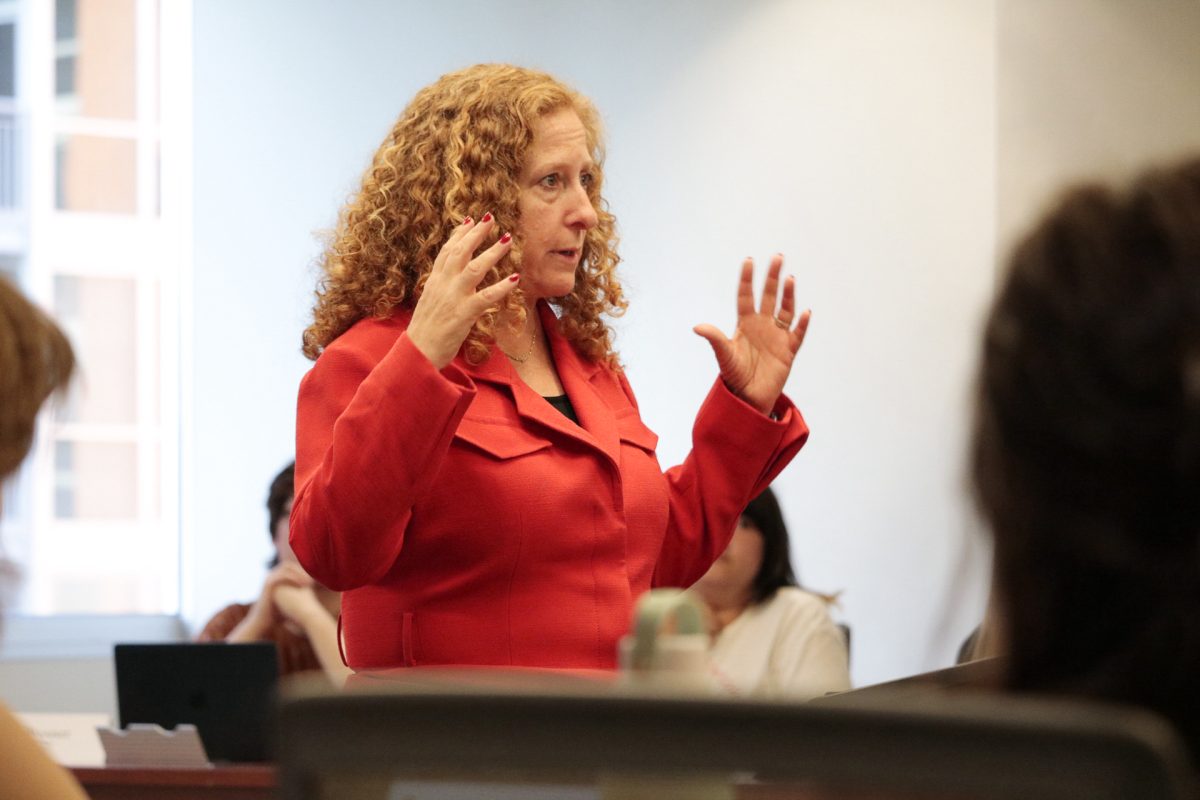Imagine going to a University of Wisconsin football game sober.
You arrive at Camp Randall Stadium and have the ability to find your seat immediately, instead of drunkenly wandering around. The extra time you have after finding your seat allows you to notice that students are not the only fans at the stadium.
You see that families consisting of young children, middle-aged folks and senior citizens fill the seats adjacent to the student section. You are also keenly aware of the fact that, while the stadium is a sea of red and white, there are pockets of fans dressed in opposing colors. Your acute awareness of these surroundings may cause you to feel uneasy as the game progresses.
Profanity-laced chants seem deafening when performed in unison by 15,000 UW students. Some fans in adjacent sections begin to chant along, but you notice that some others have begun to cringe in disgust. Now that you're taking a look at it through sober eyes, you see that portions of the student section are becoming unruly and plainly inappropriate. These fans are cursing at, threatening and throwing objects at the pockets of visitors. You realize that you would only be OK with what's going on at Camp Randall if you were three sheets to the wind.
Is this a hypothetical scenario? Yes. But is it unrealistic? Absolutely not.
Some students may not be embarrassed or uncomfortable about the game-day actions some Badger fans take. But it is these types of alarming situations which inspired the chancellor's office to team with the athletic department three years ago in "rolling out the red carpet."
The initiative begins
Taking effect at the start of the 2004 fall semester, the Rolling Out the Red Carpet initiative marked UW's response to complaints about drunken and unruly Badger fans on game days.
Negative feedback from visiting fans after the Badgers' memorable October 2003 victory against Ohio State spurred the university to take direct action.
John Lucas of University Communications described some of the complaints the chancellor's office received after the game.
"We received two types of negative e-mails. The first type were complaints from visiting fans who didn't like all the profanity," Lucas said. "The second type were complaints about real physical threats."
He recalled a few of the complaints that keyed the initiative after the 2003 Ohio State game, how one individual had a garbage can thrown at him and how another was so appalled by how UW fans treated him that he got his family back in his RV and drove home without even staying for the game.
According to Vince Sweeney, associate director of intercollegiate athletics general operations, the chancellor's office came to the athletic department to spearhead the initiative because, "They just got sick of not having answers for the people who complained."
UW's response, Rolling Out the Red Carpet, promotes a positive atmosphere at athletic events through specific programs like volunteer fan ambassadors and public service announcements, as well as a general emphasis on sportsmanship.
Student involvement
Despite the initiative's focus on athletic events, Sweeney said the UW Athletic Department plays a minimal role in the effort.
"What's unique about this drive is that it's not really an athletic thing," he said. "It has been primarily driven by campus groups, the chancellor's office and students. Over 200 student volunteers are participating in the initiative."
Student volunteers serve as fan ambassadors that are essentially an extra set of guest services at the stadium. According to Lucas, the chancellor's office has received a lot of positive feedback about the student volunteers.
"Student participation was very encouraging last year as groups of students gathered by dorm house fellows, fraternities and sororities, the Homecoming Committee, and the Wisconsin Alumni Student Board all participated," Lucas said. "The visiting team's alumni association always seemed pleasantly surprised when our ambassadors sought them out to greet them."
Increasing student participation is an indicator that the Red Carpet program is helping to generate a welcoming atmosphere at UW events, Lucas said, which benefits the campus and city alike.
"Overall, we don't want to be known as a place where fans get hit with batteries. We want our university to be known as a positive place to come and have a good time," Lucas said. "Students run the risk of portraying the city of Madison in a negative light if the general sense of our student body is they are drunk, violent and disrespectful."
George Twigg, communications director for Madison Mayor Dave Cieslewicz, said people who visit here usually judge their visit as a whole. However, he added, a Badger game may be a large part of their overall experience.
"Visitors don't always limit themselves to the athletics," Twigg said. "There are so many other things they can do and they usually take advantage of those as well. A positive experience is ideal for them and for the city."
Of course, fans can't be worried about things like that on game day.
Fan expectations
For the UW student body, Rolling Out the Red Carpet has brought with it an elementary goal. The chancellor's office expects fans to behave responsibly.
"Chancellor Wiley doesn't think it's too much to ask our students to behave," Lucas said. "We want things to be a little more civil and a little less intoxicated."
Madison City Council President and UW alumnus Austin King said he strongly supports the Rolling Out the Red Carpet initiative because it should only serve to create a more positive environment.
He added that being a solid Badger fan should mean being emotional while knowing where to draw the line.
"The best fan s are passionate, loud and kind of wild," King said. "They can banter back and forth with opposing fans as long as they don't get out of line. Violence, violent threats or any form of breaking the law is just unacceptable. College students have to be responsible, but that doesn't mean they can't still have a blast."
And according to Lucas, the initiative has not silenced a raucous UW crowd at all, and said Camp Randall Stadium is still as loud as ever. Fans still have traditions like "Jump Around," the wave, and others. Promotion of a positive atmosphere, he added, does not take away from the Badgers' home-field advantage.
King pointed out that Badger fans are actually very classy and that the general atmosphere at a game is consistently positive, but noted pockets of unruly individuals can ruin the reputation of the entire student body. Sweeney echoed this sentiment.
"We're not naíve enough to think we're going to be able to change the world," Sweeney said. "There's going to be some people who cross the line, but one by one, two by two, we've had some positive effects."
Separate from the Red Carpet, but still a part of Badger fan expectations, is the athletic department's ability to revoke students' tickets. Sweeney said the department will review the cases of students who receive citations during Badger games this semester, and issue warnings or revocations as warranted.
UW senior Jon Tichenor said he is concerned about the potential that UW could overstep its bounds with regard to fan behavior.
"I'm just worried that with all of these expectations, it could get to a point where they don't let students have any fun," Tichenor said.
Beyond UW
Efforts to promote sportsmanship on campus in recent years have not been limited to UW. The drive to roll out the red carpet for fans in Madison was part of a trend encompassing universities across the country. However, Sweeney said, it seems UW has gone further than most other universities.
"Nationwide, there was a concern about sportsmanship issues," Sweeney said. "Reports of negative experiences at college sporting events had become too common a thing, and institutions were looking to do something about it."
Big Ten Conference Assistant Commissioner for Communications Scott Chipman confirmed the general topic of sportsmanship has been an item of discussion for Big Ten officials and administrators in an all-encompassing sense.
"[Sportsmanship] has been a focus for us in terms of fans, coaches and teams," Chipman said. "We want the people that represent our conference to act and perform in ways that makes us all proud."
Chipman said discussions about a positive athletic environment have not produced any specific Big Ten programs or guidelines, but added that he thinks awareness of the issue across the conference and nation would only serve to bring more positive experiences.
Lucas did not fault the Big Ten for not articulating expectations and guidelines, adding that the chancellor's office considered the problem major enough to create a program to deal with it.













